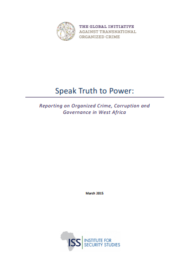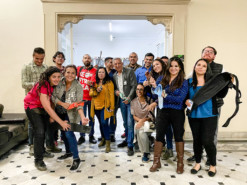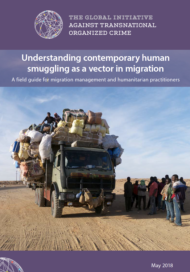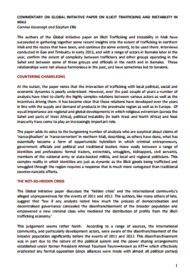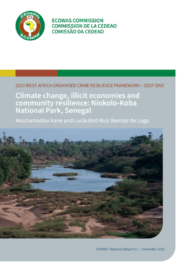Posted on 28 Oct 2014
The impact of criminal governance in West Africa
West Africa is a region reputed for its multi-dimensional fragility, where widespread poverty, inequality and under-development are exacerbated by environmental degradation, conflict, terrorism, corruption, high-level capital flight, impunity, organized crime and illicit trade.
In a precursor to this report, Reporting on Organized Crime, Corruption and Governance – Final Report, a study published by the Institute for Security Studies, “People’s Perspectives of Organized Crime in West Africa and the Sahel,” described a situation in which citizens felt increasingly distanced from the state, which provides little in the way of service delivery or opportunities for development, and where, in an absence of legitimate livelihoods, a long-standing reliance on informal trade has lead to a growing illicit economy that is eroding traditional ways of life and community structures. In essence, the study found that for key states in West Africa and the Sahel, sitting along the cocaine route to Europe, crime was warping the core principle of democratic process: instead of earning popular trust through legitimate economic and social policies, the path to power was being found by securing revenue through criminal practices, thereby setting in place a self-reinforcing, vicious and negative cycle of poverty, crime, corruption and disenfranchisement. This dynamic is creating a growth of community level-violence, religious fundamentalism and fuelling extremist and insurgent groups that are prompting instability across the region (Reitano & Shaw, 2014).
Whilst canvassing people’s perceptions of organized crime and its impact, the study also sought the views of their views on how to turn back the negative cycle. The participants identified an independent media and free civil society as one of the most potent tools to address the rule of law and democracy deficit that they were experiencing. This is reinforced by global best practice in good governance, and countering corruption, which finds that a strong and independent media is globally recognized as an essential bulwark against the growing inter-dependence between crime and corruption, as well as being a cornerstone of sustainable development. At the same time, attacks against journalists and media institutions are one of the first warning signs of compromised or repressive state.
It was thus a policy conclusion of the study that reinforcing the capacity of independent media to report with integrity on crime, corruption and governance would add value to developing a culture of accountability within the framework of the rule of law in West Africa. It would also protect human rights and foster a culture of civic engagement.
Building capacity of West African journalists
Responding to this, the Institute of Security Studies, in partnership with the Global Initiative against Transnational Organized Crime, and financed by the National Endowment for Democracy, organized a week-long capacity building seminar in Dakar, Senegal, for eighteen independent journalists from eight countries in West Africa and the Sahel. The objective of this initiative was to sensitize those journalists who have a track record in investigative reporting on governance issues in the broader region, to build networks to promote cross-border collaboration on investigations into transnational crime and insecurity, to develop mentoring relationships with international media, and to build skills and protect the safety of those engaged in this dangerous endeavor.
Please find the report, “Reporting on Organized Crime, Corruption and Governance – Final Report” below. This report reviews the continued importance of this endeavor, and summarizes some of the issues and challenges identified by the participants of the seminar in successfully responding to what they saw as a vocation: investing crime and corruption, promoting governance, and holding governments to account for the well-being and security of their citizens.
